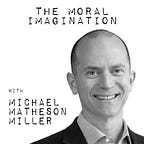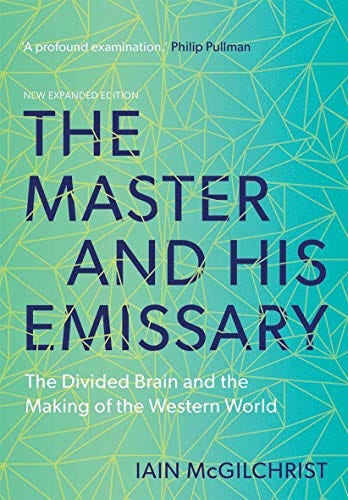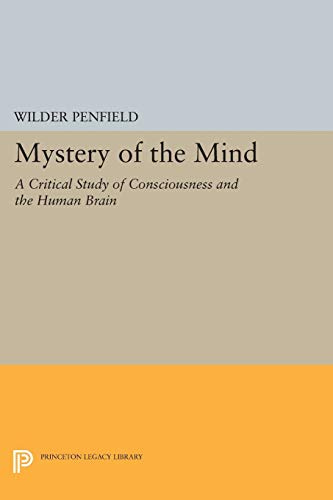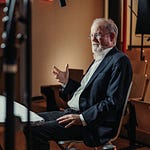Does neuroscience prove there is no free will? Is consciousness reducible to a neural network? Are we determined by our brains?
In this episode I speak again with neurosurgeon, Dr. Michael Egnor. We discuss Sam Harris arguments against free will, and examine not only the philosophical problems with Harris’ argument, but Dr. Egnor also argues that Harris incorrectly interprets the work of Benjamin Libet on will and the readiness potential, and that Libet himself did not reject free will.
We also discuss the complex question of consciousness and the materialist claims that consciousness can be reduced to a physical, neural process. Here we again talk about the work of Bennet and Hacker on the conceptual errors of much of cognitive neuroscience. We also discuss Wilder Pennfield’s work on epilepsy surgery and split brain patients, Iain McGilchrist on the two hemispheres of the brain, and Adrian Owen’s studies on brain activities in vegetative states.
This is an important episode because it addresses neuroscience in relationship to fundamental questions of human freedom, moral agency, the transcendent dignity of the person, and ultimately what it means to be a human being. We hear a lot about how neuroscience proves that what we thought were complex human experiences—consciousness free will, or love, or faith—they are really just complex neural processes explained my material causes. But with closer examination we find not only philosophical problems with these claims, but that the neuroscience doesn’t always show what the popular stories claim, and that there are deep conceptual errors underlying the neuroscience itself. As Iain McGilchrist writes in The Master and Its Emissary, it is a mistake to reduce the person simply cognitive awareness:
Why should ‘we’ not be our unconscious, as well as our conscious, selves? Libet's experiment does not tell us that we do not choose to initiate an action: it just tells us that we have to widen our concept of who ‘we’ are to include our unconscious selves.
In my first conversation with Dr. Egnor we discussed the general problem with pre-conceived materialism and the mereological fallacy—the error of attributing whole to the part. This is the common error of ascribing to the brain psychological properties that belong to the person. Saying the brain thinks, the brain decides, or the brain feels—is an error. As Hacker has asked—if the brain does these things—what is this self that has a brain? Who am I that has the brain? In this episode we continue with this discussion of philosophy and neuroscience with a focus on free will, consciousness, and human action.
Biography
Michael Egnor, M.D. is a Professor of Neurological Surgery and Pediatrics and Director of Pediatric Neurosurgery at Stony Brook University’s School of Medicine. His surgery practice includes patients diagnosed with Arnold Chiari deformity, hydrocephalus, cranio-synostosis, brain tumors, and spina bifida, as well as children with severe head trauma. He has an international reputation for research on hydrocephalus, and he is on the Scientific Advisory Board of the Hydrocephalus Association in the United States. He did his medical degree at Columbia University College of Physicians and Surgeons, and his residency at Jackson Memorial Hospital, Neurological Surgery.
Resources
Sam Harris : Shorter Video Harris on the Illusion of Free Will
Bennett and Hacker Philosophical Foundations of Neuroscience & The History of Cognitive Neuroscience (Links below)
On Random Thoughts and Free Will
Sam Harris argues that our random thoughts are another argument of free will, but there is a long tradition of reflection on this experience:
St. John of the Cross (16th c) on “random thoughts” The Dark Night of the Soul
Orthodox / Easter Christian reflection on “random thoughts” The Logismoi at Orthodox Wiki
Evagrius of Pontus (346-399) on Logismoi See Orthodox Wiki and The Philokalia, Volume 1
A very good resource is The Philokalia There is quite a bit about how to capture, struggle, with and conquer “random” thoughts or evil thoughts that press upon us
Dietrich von Hildebrand also writes about this as well in a number of places.
More to come.
Aristotle on 4 Causes
Wilder Pennfield Epilepsy Surgery
Vegetative States: Adrian Owen Lab
Mind Time: The Temporal Factor in Consciousness (Perspectives in Cognitive Neuroscience)
By Libet, Benjamin
Volitional Brain: Towards a Neuroscience of Freewill
Imprint Academic
The Master and His Emissary: The Divided Brain and the Making of the Western World
By McGilchrist, Iain
History of Cognitive Neuroscience
By Bennett, M. R., Hacker, P. M. S.
Philosophical Foundations of Neuroscience
By Bennett, M. R., Hacker, P. M. S.
By Penfield, Wilder
No Man Alone: A Neurosurgeon's Life
By Penfield, Wilder



















